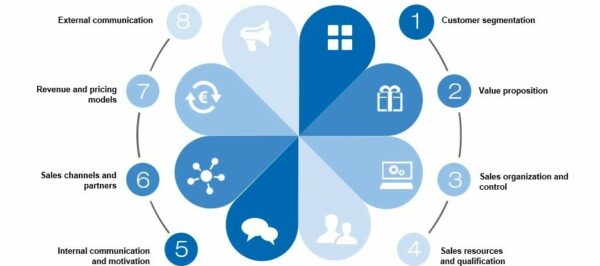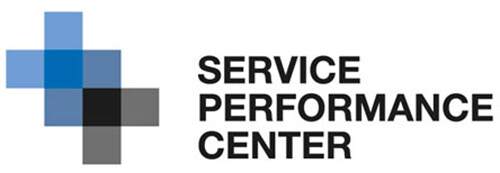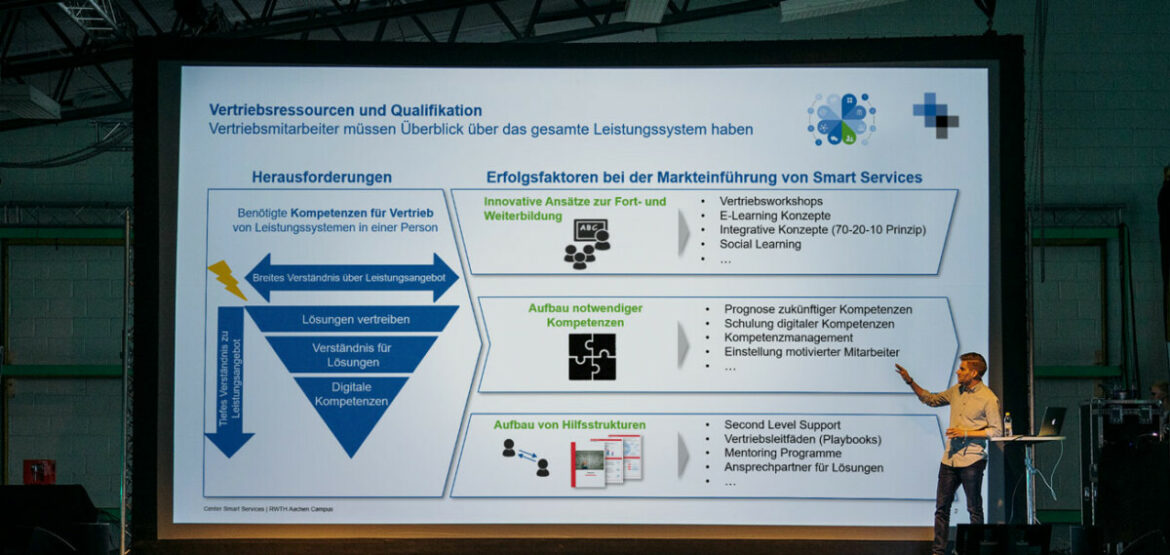7. May 2021
Not all sales are the same!
Long-established sales processes between retailers and their service partners in industry often fail to master the challenges posed by the introduction of a digital product. But how does the sale of digital products differ from the sale of physical goods? This is a question which has been successfully addressed by a team from the Smart Services Center. Over the past months, their answers were successfully validated in real-world settings by a cross-sector consortium and remotely applied many times at various partner companies. It became clear early on in the project that many of the challenges encountered and insights gained are not sectorspecific.
The team found, for example, that often, the failure of a digital product launch is not due to the product, but rather due to the organization and the competencies within it. Frequently, it is the company’s own employees who, for a variety of reasons, are not convinced of the new products and thus do not take them to a successful market launch. In sales, other significant aspects are incentivization and commission agreements. It is important to note that the sales commission for a machine worth several thousands of euros is typically much higher than that for a digital product or service that is monetized through a monthly subscription fee.
Strategy for Success: A Cross-Industry Innovation Project

CSS
Together with FIR at RWTH Aachen University and the companies AVL, Dräger, GEA, Fresenius Medical Care, Trumpf, Siemens Logistics, and Siemens Healthineers, a team from the Smart Services Center developed a catalogue of measures to support companies in planning and evaluating the market launch and distribution of their digital products. However, the implemented measures had to be individually tailored to the needs of each company: even though all companies involved were faced with similar challenges, sector-specific requirements had to be takein into account. At the end of the project, each company underwent an assessment of its own sales and distribution capabilities and received a detailed action plan for the next six months.
The Smart Services Center’s approach of forming industrial consortia to address practice-relevant topics has proven to be effective for a wide range of questions and problems in business and industry, resulting in solutions to both sectorwide challenges and company-specific issues.
From the Big Picture to the Individual Roadmap
As part of the project, a catalogue of 77 methods and recommendations for action on how to sell digital products was created. In-depth interviews were conducted with highprofile industrial and software companies to incorporate their expertise and best practices. The identified methods and best practices were systematized in a framework consisting of eight fields of action within four maturity phases. In order to make the knowledge contained in the method catalogue effectively applicable at the company level, 10 – 15 relevant methods were selected to be discussed in individual strategy meetings and then integrated and implemented in a company-specific 6-month roadmap.
Fresenius Medical Care Opts for a Sustainable Approach
24 after completion of the initial project, all consortium partners had implemented the roadmaps developed. After implementation, Fresenius Medical Care went one step further and became an enrolled member of the Smart Services Center. In addition to implementing the sales and distribution process, the company invested in training and skills development, making it possible for employees in key positions to participate in RWTH’s “Digital Product Manager” and “Digital Business Developer” certificate courses, which equipped them with the know-how of how to build a wellfunctioning digital business.
The Bad Homburg based enterprise has also been participating in various follow-up consortium projects. For example, the company has realized that the distribution process cannot be fully optimized by implementing a single roadmap, but that it is key to generate further customer insights to better understand the customer and to identify the right pricing for its digital products and
services. To ensure that the activities of the past months did not remain isolated flagship projects, it was important to disseminate the knowledge within the globally active company in the best
possible way and make it accessible worldwide. Here, too, the team of the Smart Services Center, in collaboration with the “New Industrial Work” specialist group of FIR at RWTH Aachen University, supported the HR expert team in implementing the ‘Fresenius New Way of Work’.
Optimize Your Sales Now
In the meantime, the approach outlined above has been extensively tested and further developed. With its 77 methods and recommendations for action, it contains a detailed catalogue of measures to advance the distribution of digital products in a targeted manner. With the help of these methods and measures, it becomes much easier to introduce new digital products alongside their wellestablished “standard products” and to secure their success.
If you are also facing the challenge of establishing digital products on the market and are wondering whether you are on the right track or even need support on this topic, then contact our specialists.
The challenge of multi-level distribution of digital products
Are you currently facing the challenge of distributing your digital products via regional dealer networks and/or sales companies? Then find out more about our multi-level distribution consortium project, which will be launched shortly! Together we will answer the following questions, among others:
- How can existing structures and partners be used for the distribution of digital products?
- How must sales be structured for digital products in the future?
- How do you need to support and guide your existing partners in their transformation and development?
If you have any questions about this project, please contact our colleague Marcel Faulhaber and find out more on our website.


